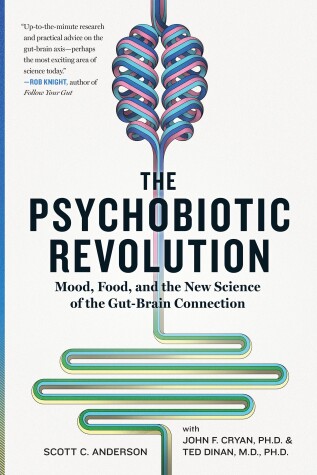Purchase Links
National Geographic | Amazon | Barnes & Noble
I love the discoveries that are being made about the role of the gut and the gut microbiome in all aspects of health. I've been applying them in my practice with good success in GI disease. That's why I was excited to read this book about the connections between the flora in the GI tract and human brain health.
This book is written for a lay person. It does a very good job of explaining some difficult concepts in a way that will be easily understood by people who don't have any biology background without dumbing the subject matter down so much that people with more knowledge would cringe as they read it. That's a fine line to walk.
The main point of the research is that bacteria in the GI tract break down the food that we eat. They are also responsible for some defense against bad bacteria. They secrete substances that help stabilize our moods.
It is our job to make sure that we don't harm the good bacteria (probiotics) that we have. In addition we need to give them the right types of food (prebiotics) to make sure that they thrive. There are suggestions in this book for all do help do all of these things.
My only criticism is that in their enthusiasm to tie together gut health and brain health, the authors made it seem like the whole key to everything is the microbiome. That leaves out the very real multifactoral issues that go into mental health problems. A proper and healthy microbiome can definitely help but it shouldn't be thought to fix everything on its own.
I hope more people start to understand the correlation between probiotics and overall health - not just in GI disease. People seem to be getting more open to the idea. The only real pushback I've ever had when dispensing probiotics was actually from a human physician who told me that there was no evidence in humans that probiotics did anything beneficial. He allowed that maybe it was different in animals. I hope he reads a book like this someday and opens his mind to the possibilities.
Tour Stops
Wednesday, November 1st: Sapphire Ng
Thursday, November 2nd: Peppermint PhD
Monday, November 6th: Based on a True Story
Thursday, November 9th: Jathan & Heather
Monday, November 13th: Instagram: @caitlyn_block
Tuesday, November 14th: Literary Quicksand
Thursday, November 16th: Patricia’s Wisdom
Friday, November 17th: Instagram: @leahbhealthy
Monday, November 20th: Instagram: @wellnesswithedie
Tuesday, November 21st: Dreams, Etc.
TBD: Instagram: @danidoeshealth
IG Story: Instagram: @sierranielsenThis review was originally posted on Based On A True Story
